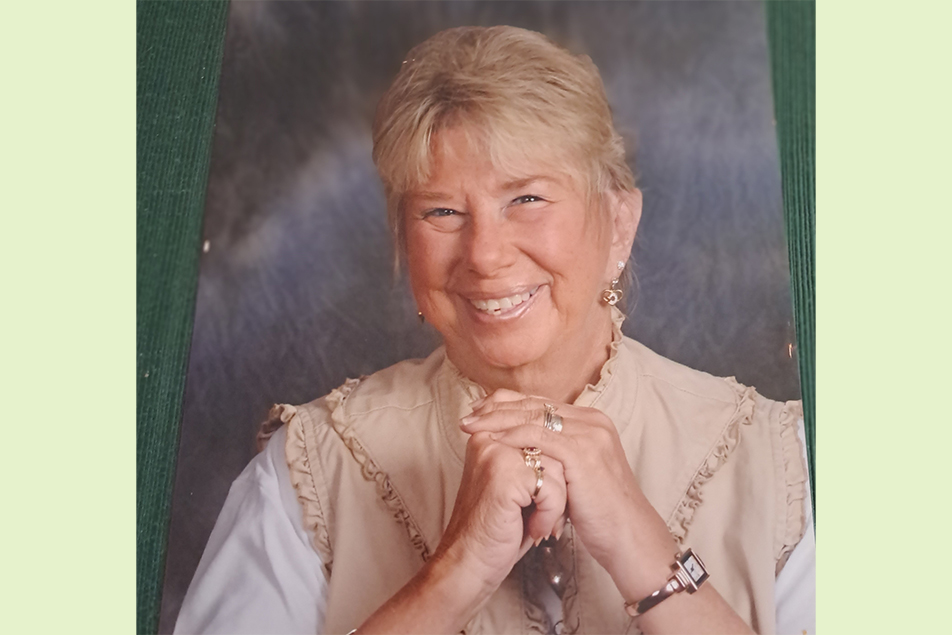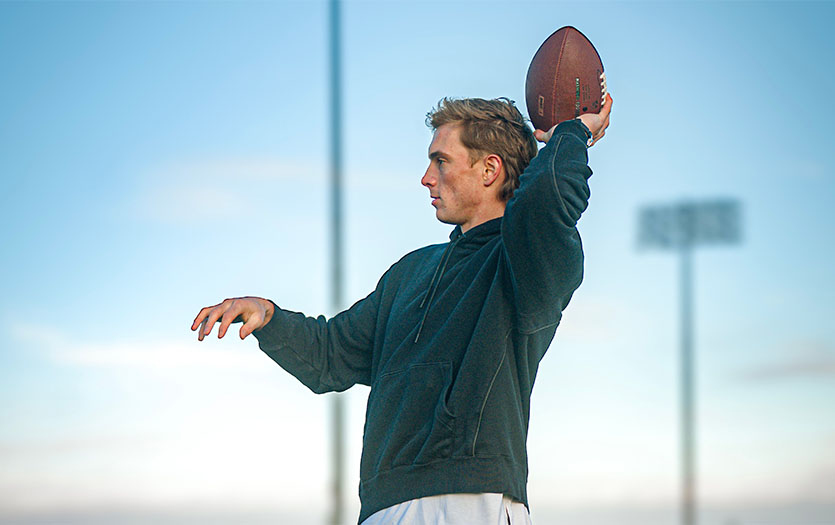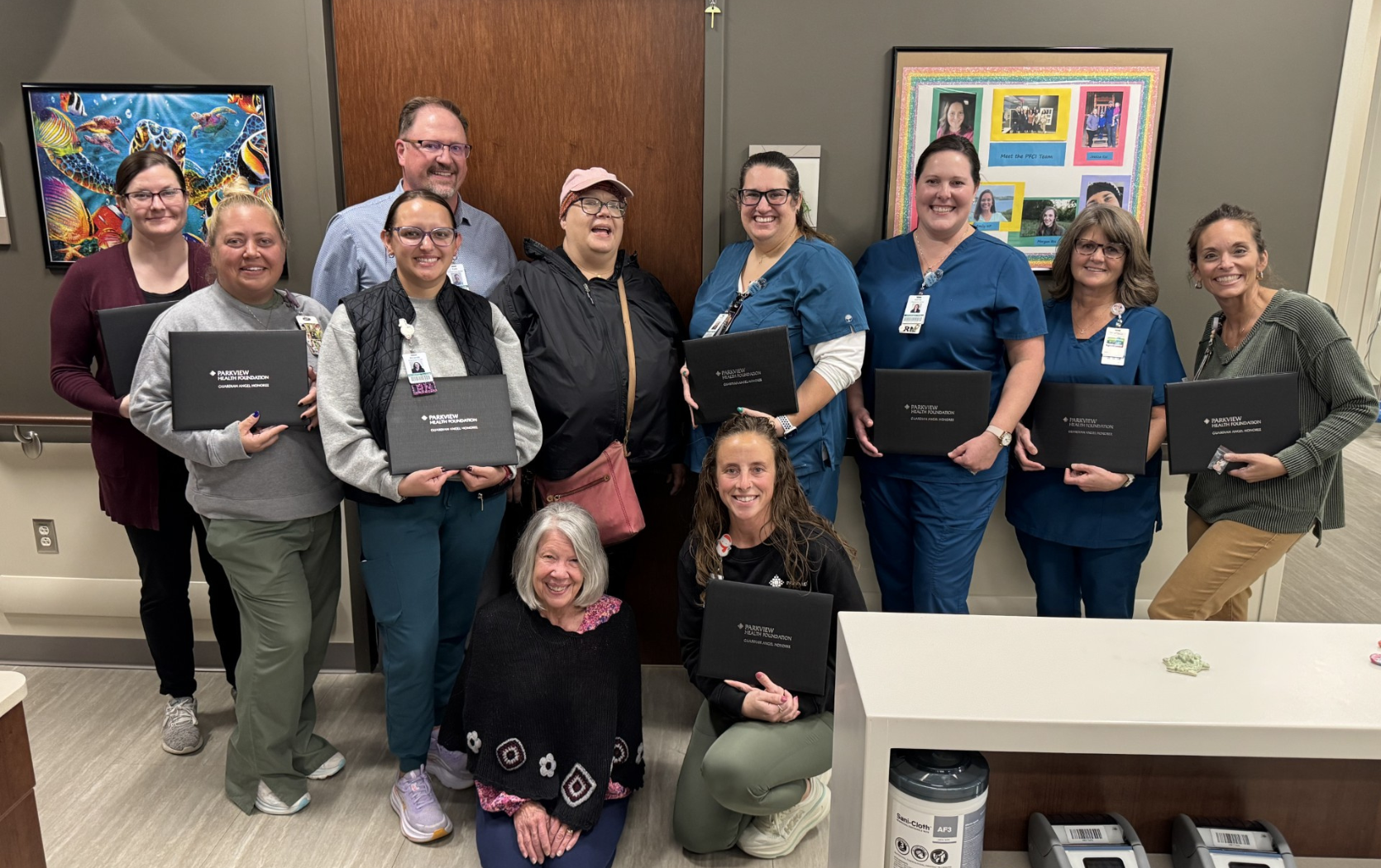
According to the American Cancer Society, about 5.4 million nonmelanoma forms of skin cancer are diagnosed each year in the United States. In fact, roughly 8 out of 10 cases diagnosed are basal cell cancers, one of the most common types of skin cancer often related to sun exposure. Earlier this year, Carolyn Miguel faced this reality when she found a small bump on her head. Read on as she shares her journey with us, from a surprising diagnosis to her experience with Mohs surgery and the exceptional care she received at the Parkview Packnett Family Cancer Institute.
What can you tell us about your health and why you needed Mohs surgery?
I had noticed a lump on my head, about an inch above my forehead, into my hairline. It had been there for a while, but it didn’t hurt or bother me, so I blew it off. However, during a regular checkup with my provider, and out of my own curiosity, I asked him about it. He took a look and said I needed to see a dermatologist.
I took his advice and made an appointment to see a dermatologist. They biopsied the bump and confirmed it was a basal cell carcinoma (BCC). They informed me that Mohs Micrographic Surgery, a single-visit, outpatient surgery that removes aggressive nonmelanoma forms of skin cancer on the head and neck, was my next step. So, I called Parkview and connected with Robert Bednarek, MD, Mohs Surgeon, Skin Care Team, Parkview Packnett Family Cancer Institute.
What were your initial thoughts and feelings after hearing your diagnosis?
Well, I have been a sun worshipper all my life. I used to bathe in oil when I was a teenager, and we’ve gone to Florida for Spring break for the last 37 years (with little to no sunscreen), so I wasn’t completely surprised when I received my diagnosis. But, like anyone, I had a mix of emotions. I was scared and very nervous, with some relief thrown in there, too, because I knew I was in good hands.
Can you walk us through the process and what it was like going through Mohs surgery?
My husband went with me on the day of my surgery. Everyone was kind and very friendly to me, but I was still fairly nervous. Dr. Bednarek informed me that they perform the procedure in stages. He explained that he would have to examine each layer under a microscope after removing it. Then, if there were any remaining cancer cells, he would take another layer of tissue and repeat the process until everything came back clear. Knowing it could take some time, I came prepared with my book and a snack, ready to wait patiently.
Dr. Bednarek could tell I was anxious, so he asked if I wanted to know what he was doing. I said, ‘Oh no! Please don’t do that!’ Instead, we made small talk. He told me about himself, his family, where he went to school, etc. It was just a tiny thing, a little conversation, but it helped relax me. My procedure took maybe half an hour. Then, I was on my way. They sent me home with care instructions and scheduled another appointment for me in two weeks to remove my sutures.
During my suture removal, I asked about another recently noticed spot just above my lip. They agreed that it looked concerning too. They did a biopsy that day, and sure enough, I received a call two days later confirming all our suspicions. The bump was a basal cell carcinoma. Fortunately, I wasn’t as nervous about the surgery this time because I knew what to expect. Despite that, everyone was kind and gentle, just like my first experience.
How has this experience changed your perspective on life and your health?
In a way, it’s made me more aware. Looking back, I had no idea how the bump on my head had been there. I blew it off when I should have had it checked right away. From here on out, I plan to listen to my body when it’s trying to tell me something. That’s what I have learned from this entire experience.
Is there anything you’d like to say to Dr. Bednarek and those involved in your care?
People are always quick to point out bad experiences or when they’re unhappy, which is important. But I think it’s also vital that we highlight those moments of exceptional service. People should hear the compliments too. For example, everyone was so kind and considerate with each of my surgeries. They never minimized how I was feeling. They were very compassionate and understood my concerns. Their words, timing and the procedures themselves went so smoothly. Everyone was wonderful! I can’t thank everyone enough or say enough good things about them.
Final thoughts
Early prevention and detection are key. Recognizing the signs and symptoms of skin cancer is crucial, giving the disease less time to progress. If you or a loved one have a concerning spot, please speak with your primary care provider or consult a dermatologist. For more information regarding the different types of skin cancer or Mohs surgery, please visit the Parkview Packnett Family Cancer Institute page.



